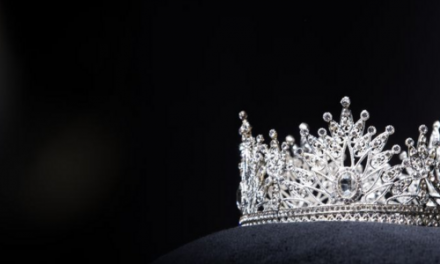From social media sites like Facebook and Twitter to online gaming forums like Blizzard and Twitch, the question of free speech and the right of users to express themselves has been a constant topic, and often gets brought to the fore with incidents like the runup to the 2020 US presidential elections, Hong Kong’s independence protests, and the jailing of political dissidents in Spain. The online world is more intertwined than it ever has been, and the old standards of what content “belongs” on what platform have crumbled.
I have very strong opinions when it comes to the difference between objectivity and neutrality in communications media, and how information is presented. In this context I define neutrality as a controlling entity giving all viewpoints equal weight, maintaining a hands-off approach to moderation and curation, without subscribing to any one particular opinion or ideology. Conversely, objectivity is weighing all evidence and enforcing a proportional balance of coverage, with skepticism expressed for untested or unproven ideas.
As an example, a neutral public-access show may give airtime, and thus a platform, to anyone who calls in, regardless of opinion or viewpoint. A climate scientist could call in and discuss the verifiable data pointing to an anthropocentric alteration of our planet’s environment, and right after someone could call in with their pet idea that recent warming trends are due to the prevalence of LED light bulbs. There is not only no evidence for the latter, but a great deal of evidence to suggest that no such causation could be possible. On a neutral platform however, both are given equal weight and air time.
An objective public-access show with the same callers may cut the second guest short, pointing out that the evidence does not support any of their ideas, and that the overwhelming majority of science experiments have identified specific causes that have nothing to do with light bulbs. Objectivity is often viewed by the dismissed opinion as being partisan or closed-minded, because it minimizes an unfounded ideology. John Oliver did a fantastic presentation of client science debates on Last Week Tonight and I highly encourage everyone to watch the four-minute clip.
I wish I could find the sociological term for the process whereby an unmoderated society invariably falls toward extremism, but I’ll do my best to explain the concept in brief. Imagine a group promising freedom for all viewpoints, a truly neutral marketplace of ideas. On one end of the spectrum there are those who believe in harmony and self-governance for all—they feel it isn’t their place to tell anyone else how to live. On the other end of the spectrum there are those who believe in authoritarian determinism, where social stratification and dictatoral control are vital for a thriving society.
Those leaning towards the more live-and-let-live side are likely to be hesitant to dismiss or decry the ideas or actions of the latter group, because to do so may fly in the face of their own beliefs. This invariably tilts the balance toward those who have no such qualms against telling others what to do. In time, those who could not or would not submit to the new regime are driven out, further accelerating the march toward fascism. [[See the Paradox of Tolerance on Wikipedia. Thanks Caitlin!]]
This is a problem in many communities that are made up of “outsiders,” those who do not fit in with standard culture. The desire to be welcoming and respectful can seem more important than a firm adherence to any other ideals; very often in time these communities look very different from their origins as those unwilling to kick out bad apples early have guaranteed the whole harvest to spoil. It’s a difficult problem to solve, and one that isn’t easily worked around. From books like Lord of the Flies (1954) to movies such as the Anarchist Cookbook (2002) and TV shows like the Walking Dead (2010–present), this concept has been shown time and time again, drawn from real-world examples from across the globe and across all of history.
Recently I heard a story, and I really wish I could remember from where, about a visitor to an African tribe who worked with an NGO. After months of in-village work with this tribe that believed very strongly in equality and autonomy, the visitor wanted to show their appreciation for the hospitality they had been shown by organizing a large feast. They traveled to the region’s largest market and chose the biggest, most impressive animal to be served at the feast. Upon his return however, he had visitor after visitor lamenting that he had made such a poor selection, that there was barely any meat on the animal’s bones and that it would hardly feed one person, let alone a village. An endless parade of people taking the wind out of his sails.
Their observations were patently untrue, and the visitor started to really take offense at the dismissive treatment he had received for attempting to make this grand gesture. On the morning of the feast the visitor’s guide told him that it was not only tradition, it was part of the tribe’s law that those who caught the biggest or best prize be privately shamed, that their ego never grows too large. The entire tribe had rigid rules for enforcing humility to ensure no one individual would begin to think too much of themselves. It was a very striking lesson, and one that really resonated with me. For a society to truly work on principles of equality and unbiased social structure, strict and sometimes unforgiving rules needed to be in place to prevent the runaway ego or abuses of power which come with it.
What does all this talk about neutrality versus objectivity and societal pressures have to do with free speech and communication platforms? Don’t worry, we’re getting there.
One quality which instantly sours my opinion of an individual or group is hypocrisy. I strongly believe that someone should stand by their beliefs, even when it isn’t to their advantage. I of course believe in personal growth and change, but I believe it’s clear I am not referring to those whose opinions change or evolve over time; rather those who tout “the rule of law” except when it becomes a personal inconvenience to themselves, or rail against political overreach, except when their side does it. Offering “thoughts and prayers” to those affected by gun violence, but doing nothing to actually work toward a meaningful solution.
The comedian Patton Oswalt has a fantastic bit where he discusses his problem with those who are opposed to gay rights. People claiming their beliefs come from a collection of books written a thousand years ago—when they themselves ignore much of what is written therein, espousing only that which agrees with their prejudices—aren’t able to have a meaningful dialogue about the topic. If they came out and said “I think the idea of two men having sex is gross,” now there’s a starting point for a discussion, an honest foundation. Patton expresses all manner of sexual pairings he also finds gross, but acknowledges where his own personal misgivings come from and—most importantly—that it isn’t his place to dictate how other people act.
But you were going to talk about video games…
Recently protests supporting the idea of a Hong Kong free from Chinese oppression have spread across Asia and the world. The situation is far more complex than I have the capacity to cleanly summarize, but it is enough to say for this post that the protests, and the validity of their concerns, are a hot-button issue that draw opinions from countries in every hemisphere.
Online video games are a global phenomenon, and bring a great deal of cultures and ideas into contact with one another. Games such as StarCraft are nearly a national sport in Korea, and other Blizzard Entertainment titles like Overwatch, Hearthstone, and Heroes of the Storm also capturing international acclaim with the rise of e-Sport leagues and highly-publicized international competitions between top teams of professional players.
These players often gain widespread celebrity and their interviews are broadcast to millions of gamers and fans around the world. In early October, a professional Hearthstone player with the handle of “Blitzchung” voiced support for the protests in Hong Kong. China is an enormous market for video games, and Blizzard Entertainment was quick to respond to this player’s actions.
Not only did the company withdraw more than $10,000 of tournament winnings, they also banned Blitzchung from participating in any official tournament for twelve months. The two interviewers, who were caught unawares by the inclusion of a pro-Hong Kong statement by their guest, were also suspended.
For a company whose immediate response contained the line “we strongly encourage everyone in our community to share their viewpoints in the many places available to express themselves,” excuse me if I find their behavior inexcusable. Blizzard claimed the player was censored—and censured—because his post-game interview addressed elements not related to the tournament at hand. It doesn’t take more than a minute of searching the web to find video after video of post-game interviews where more topics than just the specific match were discussed, none of which resulted in the repercussions Blitzchung faced.
On the other hand, take the remarks of Magic: the Gathering player Lee Shi Tian, who after an important tournament victory also used his interview to express support for those fighting for independence in his homeland. Wizards of the Coast, the company behind Magic, did not cut away from the interview or punish Tian in any way. There is much less coverage on WotC’s (non)action than there is on Blizzard’s punitive efforts, but the two gaming juggernauts show a distinct difference when it comes to free speech.
About that First Amendment…
Before I dive into this landmine-laden topic, there are two specific points I feel I must address directly and succinctly:
- The First Amendment prohibits the US congress from making any law “abridging the freedom of speech”. It has no bearing on private companies, nor has any power outside of the bounds of the United States
- Exceptions to this Amendment exist, where the government has limited specific forms of speech such as fraud, that which incites illicit action, credible threats, and others
I am continuously frustrated by politicians who on one hand promote or support a business’ ability to deny service to customers—no matter that the denial is solely based out of prejudice—and yet berate online businesses such as Facebook or Twitter for what they claim is the censoring or minimizing of their specific viewpoints. Either a business has the ability to regulate its own content (or products) or it doesn’t.
Similarly, I can’t stand platforms which say one thing and act differently, when it comes to open speech and communication. Much as with Patton Oswalt’s debates with anti-gay rights advocates, I would take much less umbrage if a platform, be it social media or a gaming company, laid out “we do not want our services used to promote these discussions (or these viewpoints)” rather than quietly manipulating or censoring content. There then can be an informed choice of whether or not to participate in that platform or to support that company, based on what they do or do not permit. Offering meaningless platitudes about equality and neutrality when in fact the services are actively biased or otherwise politically-motivated rankles me in a big way, and was one of the primary driving factors behind my leaving social media entirely.
I believe communications platforms, like the people on them, should be open and clear about what they support. The differences between an objective platform, a neutral platform, and a biased platform are enormous, and each caters to a different set of users.
The suggestion of where a platform’s responsibility ends is a tough one. Does Blizzard’s treatment of a professional player mean the company supports China in its efforts to quell the protests? Does WotC’s lack of retribution mean the company stands by their player’s pro-Hong Kong remarks? Does Twitter’s doing nothing about rampant white supremacist rhetoric and subversion mean they support that kind of speech? What about a clothing brand that discovers it’s a big hit with terrorist organizations? Where does their responsibility begin and end?
From my limited and perhaps narrow perspective, companies and individuals should have an obligation to denounce or decry those who utilize them to make points with which they disagree. Ignoring the problem, like those who believe in true egalitarianism, will only lead to a worsening situation, one where there become fewer and fewer possible positive outcomes.
I have several related blog posts queued up, including one about the different directions from which offense can come and the concept of “death of the author,” both of which I believe follow this long ramble in a more directed, concise fashion.
Stay tuned!













